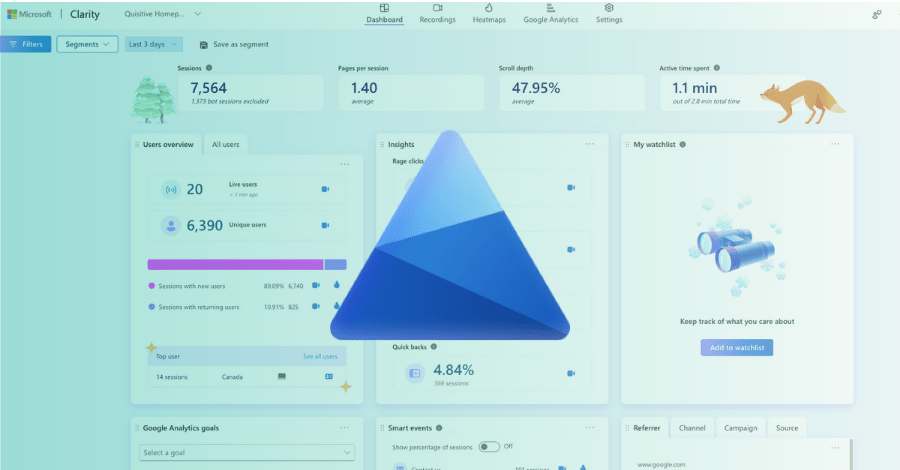Cloud-based internet security is an outsourced solution for storing data. Instead of saving data onto local hard drives, users store data on Internet-connected servers. Data Centers manage these servers to keep the data safe and secure to access.
Enterprises turn to cloud storage solutions to solve a variety of problems. Small businesses use the cloud to cut costs. IT specialists turn to the cloud as the best way to store sensitive data.
Any time you access files stored remotely, you are accessing a cloud.
Email is a prime example. Most users don’t bother saving emails to their devices because those devices are connected to the Internet.
Cloud storage enables companies to store their data in third-party data centers through a cloud provider. Organizations are rapidly adopting the cloud, but there’s concern: is data safe in the cloud?
The issues regarding cloud security are somewhat complex, but they fall into two broad categories:
- Security issues faced by cloud providers (organizations providing software-, platform-, or infrastructure-as-a-service via the cloud)
- Security issues faced by their customers (companies or organizations who host applications or store data on the cloud)
There are concerns that cloud computing is inherently less secure than traditional approaches. The paranoia is due largely to the fact that the approach itself feels insecure, with your data stored on servers and systems you don’t own or control. However, cloud computing security offers a range of security options to make sure your data is encrypted and safely stored.
Cloud storage providers and enterprises share responsibility for cloud storage security. Cloud storage providers implement baseline protections for their platforms and the data they process, such authentication, access control, and encryption. From there, most enterprises supplement these protections with added security measures of their own to bolster cloud data protection and tighten access to sensitive information in the cloud.
Cloud storage risks:
Cloud security is tight, but it’s not infallible. Cybercriminals can get into those files, whether by guessing security questions or bypassing passwords.
But the bigger risk with cloud storage is privacy. Even if data isn’t stolen or published, it can still be viewed. Governments can legally request information stored in the cloud, and it’s up to the cloud services provider to deny access. Tens of thousands of requests for user data are sent to Google, Microsoft, and other businesses each year by government agencies. A large percentage of the time, these companies hand over at least some kind of data, even if it’s not the content in full.
Cloud security controls:
These controls are put in place to safeguard any weaknesses in the system and reduce the effect of an attack. While there are many types of controls behind a cloud security architecture, they can usually be found in one of the following categories.
Deterrent controls:
These controls are intended to reduce attacks on a cloud system. Much like a warning sign on a fence or a property, deterrent controls typically reduce the threat level by informing potential attackers that there will be adverse consequences for them if they proceed. (Some consider them a subset of preventive controls.)
Preventive controls:
Preventive controls strengthen the system against incidents, generally by reducing if not actually eliminating vulnerabilities. Strong authentication of cloud users, for instance, makes it less likely that unauthorized users can access cloud systems, and more likely that cloud users are positively identified.
Detective controls:
Detective controls are intended to detect and react appropriately to any incidents that occur. In the event of an attack, a detective control will signal the preventative or corrective controls to address the issue. System and network security monitoring, including intrusion detection and prevention arrangements, are typically employed to detect attacks on cloud systems and the supporting communications infrastructure.
Corrective controls:
Corrective controls reduce the consequences of an incident, normally by limiting the damage. They come into effect during or after an incident. Restoring system backups in order to rebuild a compromised system is an example of a corrective control.
There are several approaches enterprises take to ensure their data is secure in the cloud. Let’s take a look at them.
Cloud data encryption:
To keep data secure, the front line of defense for any cloud system is encryption. Encryption methods utilize complex algorithms to conceal cloud-protected information. To decipher encrypted files, would-be hackers would need the encryption key. Although encrypted information is not 100% uncrackable, decryption requires a huge amount of computer processing power, forensic software, and a lot of time.
Data encryption in the cloud is the process of transforming or encoding data before it’s moved to cloud storage. Typically cloud service providers offer encryption services — ranging from an encrypted connection to limited encryption of sensitive data — and provide encryption keys to decrypt the data as needed.
Encryption is, so far, the best way you can protect your data. Encryption works as follows: You have a file you want to move to a cloud, you use certain software with which you create a password for that file, you move that password-protected file to the cloud and no one is ever able to see the content of the file not knowing the password.
Data encryption is regarded as one of the most effective approaches to data security, scrambling the content of any system, database, or file in such a way that it’s impossible to decipher without a decryption key. By applying encryption and practicing secure encryption key management, companies can ensure that only authorized users have access to sensitive data. Even if lost, stolen, or accessed without authorization, encrypted data is unreadable and essentially meaningless without its key.
Some cloud services provide local encryption and decryption of your files in addition to storage and backup. This means that the service takes care of both encrypting your files on your own computer and storing them safely on the cloud.
Organization-wide security policies:
Organizations using the cloud should adopt security policies related to data security (actually, all organizations should adopt them, but with the cloud it’s even more important to do so).
This is mostly related to passwords and general security practices. The best cloud protection in the world won’t help you if you use simple-to-guess passwords, or if someone from your organizations reveals passwords and other sensitive data to bad actors.
It’s important to have clearly defined security policies to prevent such scenarios.
Always backup your data:
Cloud storage is, by its nature, secure from various cyber-attacks and even natural disasters. It also offers a way to backup and restore data. Still, it’s smart to backup vital company’s information on in-house servers, just to be completely sure that crucial information is not lost in case of problems with the cloud provider.
Trust, but verify
You have to validate the faith you put in your cloud provider. Trust is essential because everyone must have access to your infrastructure if you are going to move and build quickly. But it’s essential that you also monitor and audit continuously so you can verify business-critical activity and manage risk effectively.
Final thoughts
No system is 100% safe, but cloud infrastructure comes close. Data is safe in the cloud, but some precautions have to be in place to ensure everything works smoothly. This mostly pertains to company policies about passwords and encryption.
If you have any questions about how to effectively adopt the cloud for your business, or how to optimize your cloud performance and reduce costs, contact Quisitive today to help with your performance and security needs.

;)


